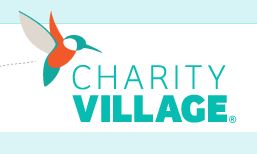Canadian ministry compensation survey
In this month’s bulletin, we ran an article highlighting one of the benefits of membership with CCCC, the Canadian Ministry Compensation Survey (CMCS). While the tool itself is not new, it remains highly relevant by providing Christian charities with salary and benefits data that helps them to make better decisions about staff member pay. If your charity is not already using this tool, I highly encourage you to try it out.
One of the great things about the CMCS is that charities can typically enter their information, and begin running reports in a matter of 10-15 minutes. The survey is free to CCCC members, and can be purchased by non-members for $200. In order to access the reports, charities must first designate an administrator who will enter their ministry’s compensation information into the tool.
The CMCS provides data on ministry positions (e.g. music/worship pastors, missionaries etc.) that are not typically captured in secular offerings and allows results to be filtered in many different ways (e.g. ministry type, position, revenue etc.) including whether the position engages in deputized fundraising or is eligible for clergy residence deduction.
While the CMCS is certainly a great tool, there may be times when charities wish to compliment these reports with data collected from other sources. In this blog post I will highlight a number of free and low cost resources that charities should be aware of when researching market data for specific types of ministry positions.
Free compensation information
 When LinkedIn recently released its new tool called LinkedIn Salary, I had to try it. I typed in my own job title and desired city centre and was quickly rewarded with the median base salary and median total compensation for Human Resources Managers in the Toronto area. I was able to further filter results based on years of experience, and view additional insights about how location, industry and education each affect staff member pay.
When LinkedIn recently released its new tool called LinkedIn Salary, I had to try it. I typed in my own job title and desired city centre and was quickly rewarded with the median base salary and median total compensation for Human Resources Managers in the Toronto area. I was able to further filter results based on years of experience, and view additional insights about how location, industry and education each affect staff member pay.
LinkedIn Salary is free to use, with the only requirement being that users must enter their own personal compensation details in order to make use of the tool. While LinkedIn salary has the potential to be a tremendous asset to charities, its recent release means that participation by Christian organizations is fairly limited to date. Subsequently, the tool may not yet be able to provide compensation insights into ministry specific positions that Christian charities are looking for. Having said that, if even a fraction of LinkedIn users utilize this service, LinkedIn Salary could end up being a very useful resource for Christian charities in the near future.
Glassdoor![]() is probably best known for enabling employees and job seekers to write reviews about organizations, but it can also be a valuable source of salary information. While the salary information that Glassdoor provides is oriented to the individual job seeker, it can potentially be useful to charities as well.
is probably best known for enabling employees and job seekers to write reviews about organizations, but it can also be a valuable source of salary information. While the salary information that Glassdoor provides is oriented to the individual job seeker, it can potentially be useful to charities as well.
By clicking on the ‘salaries’ tab, users are prompted to begin their search by selecting a job title and location. The results are organized into what Glassdoor calls Salary Reports, and is based on information provided by individuals using the service. Due to its job seeker orientation, the results are really more of a series of data points as opposed to a report that interprets trends and themes in staff member pay. Each Salary Report typically includes the salary for the job title and region that was selected. It also contains information on bonuses, the size of the organization and the number of years of experience possessed by that particular incumbent.
These Salary Reports will likely be most helpful to charities when searching for compensation data on non-ministry specific roles such as Finance Director, IT Manager or Administrative Assistant. The website also provides free access to blogs, webinars and ebooks that may be of assistance to charities.
Paid compensation information
By creating a profile with Payscale, charities get to price one job for free before deciding to commit to the paid version of the service. I was able to create a profile in minutes, and decided to see what I could learn about what Senior Pastors are paid in Waterloo, Ontario. I was prompted to complete a number of compensable factors and was impressed to see that Payscale actually had a job summary for that position.
The detailed market data report that I received provided information on base salary, total compensation and bonuses which can be viewed as either a table or graph. I liked that the results were displayed by percentile, which enables charities to get very specific about where they place staff members within a given pay range. Payscale is a subscription based service, and additional jobs can be priced for a fee. This service may be particularly useful when researching more senior roles, or ones that require a unique or hard to find skill set.
Like Glassdoor, Payscale also provides free compensation resources that include blog posts and whitepapers that charities may find helpful.
It has been a few years since their 2013 study, however Charity Village’s website indicates that a new release will be available in January 2017. This resource focuses exclusively on charities and non-profits in Canada, and includes helpful insights based on trends occurring in this sector. The 2013 compensation survey had a sample size of nearly 1,500 completed surveys, with about 2% of respondents indicating that their organization’s focus was ‘religion‘. It will be interesting to see if the 2017 survey reports an increased level of participation by faith based charities.
Charity village’s salary and benefits study provides compensation data for six different staffing levels (e.g. Support Staff, Functional & Program Staff etc.), which means that charities will need to first map each of their roles to one of the staffing levels described in the survey in order to find the data they are searching for.
The salary and benefits data provided in this study can be filtered based on many different criteria including jurisdiction, organizational focus, number of employees and revenue. While this study is limited in providing data specific to faith based charities, it is a good all around choice when looking for compensation data in the Canadian charity sector.
The Boland Survey is an annual compensation survey, and reported that just over 400 respondents participated in its 2015 study. Five reports are available for purchase and are published by the following regions: British Columbia, Alberta, Prairies (Saskatchewan/Manitoba), Ontario, and Atlantic. It is important to note that only charities who participate in the survey are eligible to buy the reports, with reports being published each fall.
The survey provides helpful insights into compensation trends (e.g. forecasting salary increases) and HR practices (e.g. vacation, flex time) as well as detailed salary tables for each position included in the survey. The 2013 survey for Ontario included data specifically for the Greater Toronto Area which charities in that part of the province may find helpful. The position of Pastoral Care Support/Chaplain was recently added to the survey and charities can request to have new roles included as well.
Participation by charities who identified their organization type as ‘religion’ in the 2015 survey was as follows: British Columbia 4%, Ontario 2.3%, Alberta 1.3%. Again, it will be interesting to see if these participation levels increase in the next survey.
Final thoughts
Researching salary and benefits data for Christian ministry roles does not need to be difficult, and thankfully there are many no cost and low cost resources that are available to assist charities in this area. If your charity is thinking about making use of a paid service, make sure the information isn’t already available to you through your denominational office or CCCC, and always check references before moving ahead with any service provider. If you have thoughts on other helpful compensation related resources that may benefit Christian charities, please feel free to share those by commenting on this blog post.






Thank you for posting this info. It is very helpful.
Our charity is located in AB and I would like to post two questions:
1. Does the Charity Village salary study released in 2017 have a higher participation of religious charities? Is there enough data about Southern Alberta to make it worth the $118 fee?
2. We want to handle the AB minimum wage increase in a way that will be fair to all hourly paid staff across the board. Would anyone be willing to share how they are adjusting their pay scale?
Hi Sabine, thanks for your comment. The 2017 Charity Village salary report indicates about 3% participation by charities with an organizational focus of ‘religion’. By region, it looks like approximately 9% of survey participants were based in Alberta.
The fee for this survey is very reasonable as most compensation surveys would cost much more than this. Keep in mind that this survey does not report data for specific roles, but has six more generic categories (e.g. Level 1 Chief Executive, Level 2 Senior Executive, Level 3 Senior Management, Level 4 Management/Supervisory, Level 5 Functional & Program Staff, Level 6 Support Staff) that it uses to report on by various organizational characteristics such as: type of nonprofit org, organizational focus, number of employees, org revenue etc.).
Hope this helps!